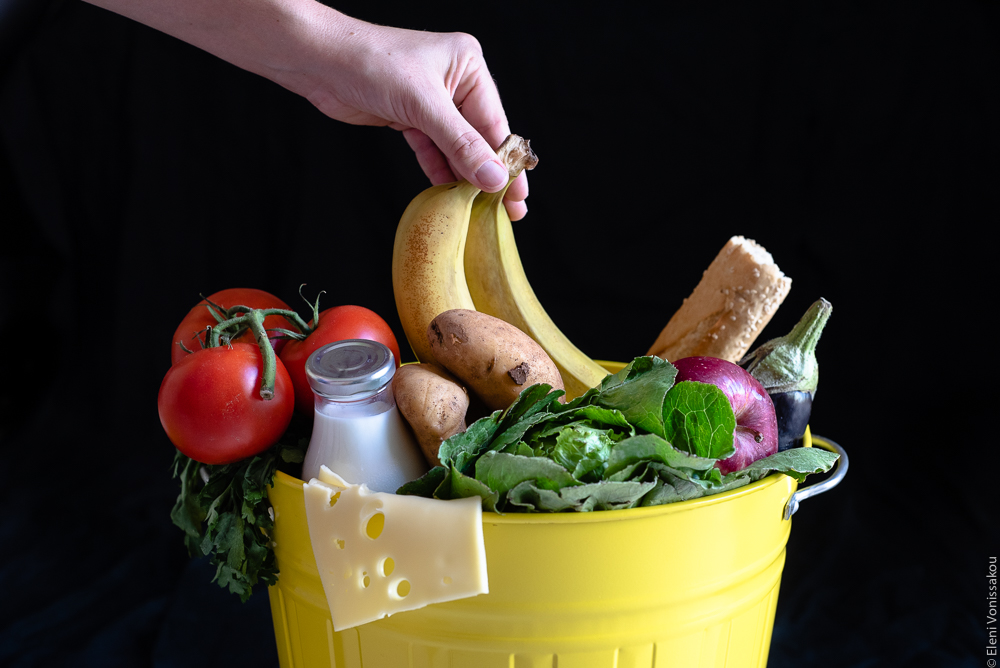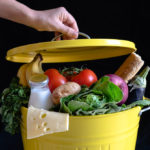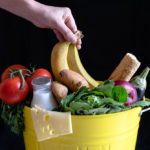Food Waste and Climate Change: How is the planet affected by food that ends up in the rubbish?
Food waste has become a major issue, affecting more aspects of our lives than we might think. Besides the moral and financial implications, food waste has serious consequences for the planet and climate change. My first article of a new series focusing on the environment, I hope you find it interesting!
{This article was originally included in a recipe post for Dips with Leftover Herbs. My apologies if you’ve read it already, I felt it needed a dedicated post in my new category! Thanks for your patience!}
Those of you who read my blog regularly, know how food waste is an issue I find extremely important. I have written about it before, and shared ideas for using up leftovers too. I have also written articles for other websites. I really hate it when I see food being wasted. Nowadays the issue has gone far beyond being “a shame” or “bad for our wallets”. Food loss and waste have become a major, complex problem with clear repercussions for the environment.
The quantities in question are inconceivable. Did you know one third of all food produced is lost or wasted, somewhere between production and consumption? (1) In terms of weight, we are talking about 1.3 billion tonnes (2). Every year. Just one quarter of this food would be enough to feed the 800 million hungry people of this world (3).
Reports show that households in the United Kingdom waste an estimated 77 kilograms per person per year, with the equivalent figures for the United States being 59 kilos, for Canada 79 kilos and for Australia 102 kilos per person per year! (4)
What’s all this got to do with climate change you ask. A lot, when you consider how many natural resources (land, water, energy etc) are required for the production of food, and how this production affects the environment (pesticides, emissions, toxic waste etc). Same applies for its storage and transportation. And then we have decomposition of wasted food in landfills which releases methane, a dangerous greenhouse gas.
Let’s see some more figures to put this all into perspective:
Greenhouse gasses: Lost and wasted food is responsible for about 4.4 gigatonnes of GHG emissions; that’s 8% of total human-generated emissions (5). If food waste was a country, it would be the third largest emitting country in the world after China and the USA (5).
Water: The quantity of water required for the production of food that is later lost or wasted, is about equal to the amount needed for all households in the world, for a whole year! (6)
Land: It is estimated that the land needed to grow all the food which never actually reaches our plates, would make up a country larger than China (6).
The numbers are alarming.
But what is the difference between food loss and food waste? Food loss refers to food that spoils or is lost before it reaches the consumer. It usually happens during the production, storage, processing, and distribution stages of the food chain. For example if a large quantity of milk in a factory goes bad due to improper storage temperature, that constitutes food loss.
Food waste refers to perfectly good food that is thrown away after it has reached the retail or restaurant/catering sectors, or consumer households. Reasons usually include “ugly” appearance, poor planning, incorrect understanding of expiry dates, negligence etc.
In developed countries waste is more prevalent than loss. Waste also has a larger footprint and negative impact on the environment as it includes the processing and transport stages of foodstuffs. For example a tomato being thrown away in the field is not the same as a prepared tomato sauce being thrown away in a supermarket or our kitchen, as harvesting, processing and transport of the sauce have already created extra emissions.
The per capita food waste footprint on climate in high income countries is more than double that of low income countries (7). It’s obvious that we as consumers play a very important role and more awareness on these issues is absolutely crucial.
There are many ways we can reduce food waste, most of them being obvious and requiring just a bit of common sense. Sometimes however it can be useful to be reminded with small tips; a nudge in the right direction shall we say. I’ll go over the main tips in another article but for now, I suggest we all take a look at our own mindset and habits.
Do we over-order at restaurants? Do we go shopping on an empty stomach and end up with more than we need? Do we prefer to get a take-out rather than spend some time creating a new dish with our leftovers? Well it’s time to adjust our way of thinking and wake up to reality. Food waste is a huge problem that we all need to pay attention to. Starting in our own homes.















 Hi! My name is Eleni. I’m slightly obsessed with recipes, cooking and food in general. So what else was I to do? I started a food blog.
Hi! My name is Eleni. I’m slightly obsessed with recipes, cooking and food in general. So what else was I to do? I started a food blog.
Thank you for a well researched article so well pointing out the tragic disparity between the hungry in the world and those careless and wasteful. The ghastly Australian figures may be somewhat worse because of very hot temperatures over much of the country for most of the year and the huge distances the produce may have to travel. There is increased understanding but matters such as these take time to evolve. Two changes are coming about – at least some of the ‘ugly’ fruit and vegetables are beginning to reach the market at reduced prices . . . quite popular amongst pensioners and those with large families. Also large welfare companies have evolved picking up ageing produce from supermarkets and restaurants either to sell such at vastly reduced prices or prepare free meals for the underprivileged . . . we have a long way to go but most people are becoming aware !!!
It’s great news that things are starting to change! It sounds a bit like what is happening here, although we haven’t started getting “ugly” produce cheaper. Hope that catches on, although the ideal would be for people to realise that ugly doesn’t mean there is something wrong with it. Oh well, one step at a time!